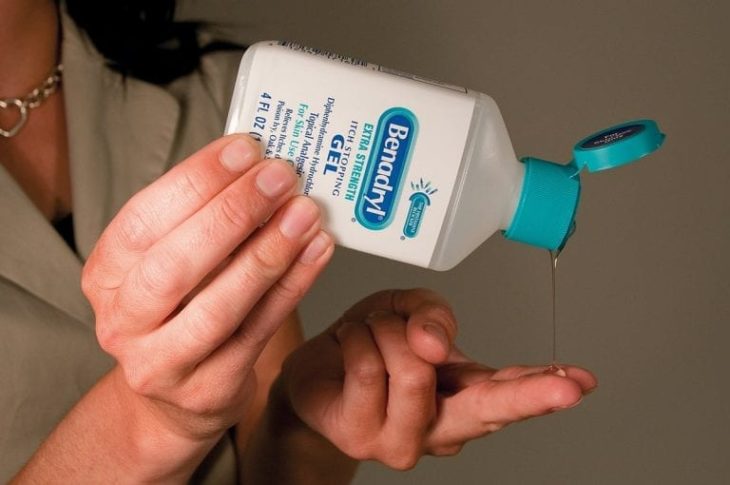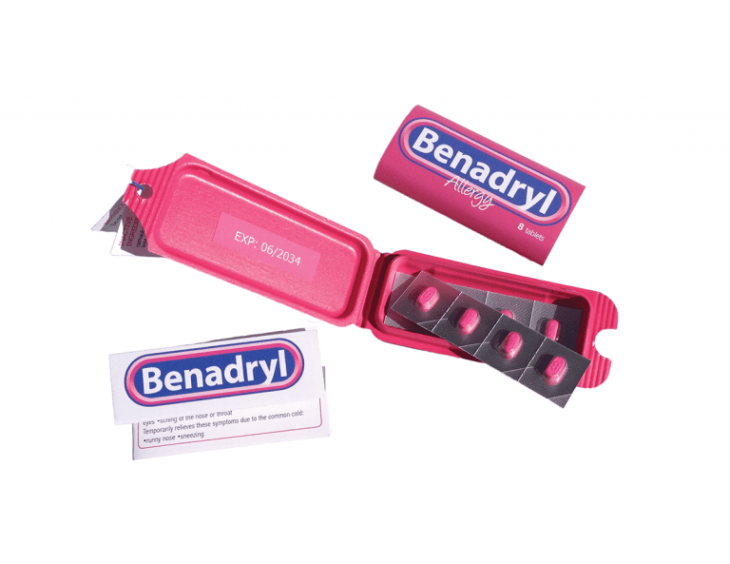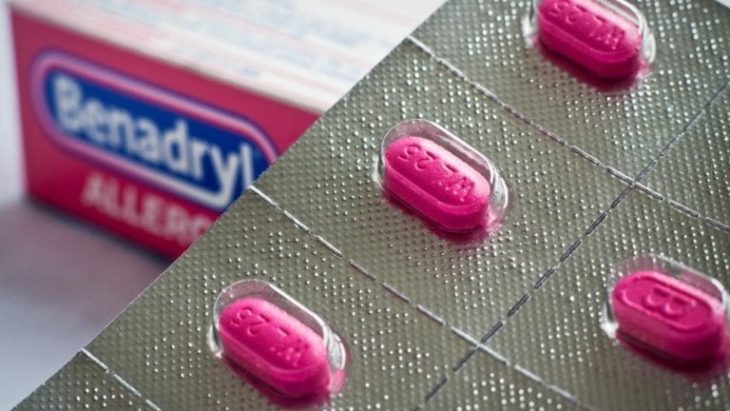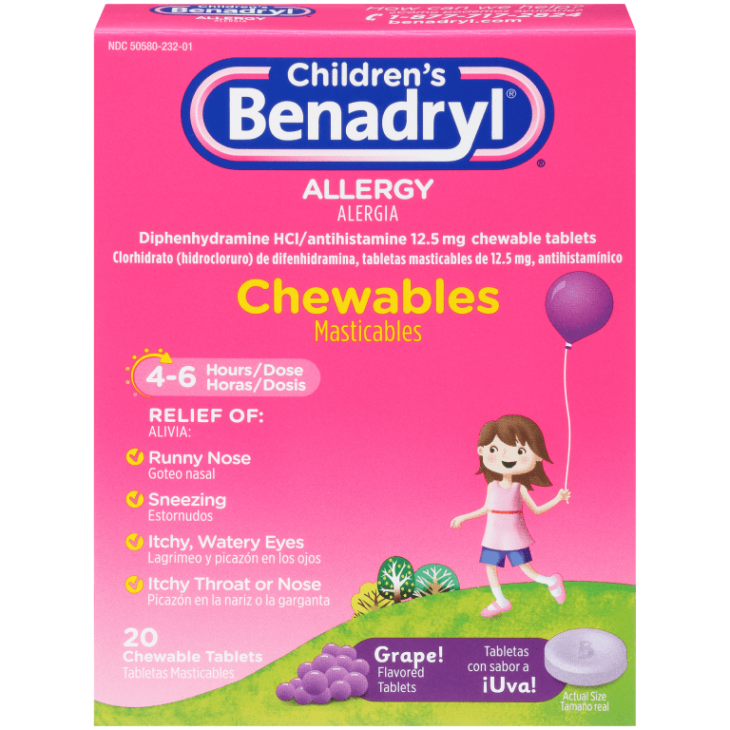– Benadryl is an over-the-counter medicine that is listed as an antihistamine. This medication is usually used to ease harsh symptoms of seasonal allergies, know as hay fever, common colds, and other allergies. It can also be used for itchy skin due to hives and insect bites, amongst other causes.
– When treating hives, Benadryl is the most effective for decreasing itchy skin. Although Benadryl is quite useful in treating seasonal allergies, a lot of people try to avoid it due to its side effect which is most commonly, sleepiness.
– There are many different forms of this medication, some are oral and some are applied directly to the skin. Some forms might be:
- Oral tablets
- Oral liquid-filled capsules, also known as liqui-gels
- Oral chewable tablets
- Oral liquid solution
- Topical cream or gel
- Topical spray or stick

Source: Wikipedia
Contents
~ Active ingredients in Benadryl ~
– There are various kinds of Benadryl-branded products. Some of these products contain just one ingredient, while others contain two ingredients.
– These are different kinds of Benadryl products and their ingredients:
- Benadryl Allergy – this product has only one active ingredient, which is diphenhydramine (an antihistamine).
- Benadryl Allergy Plus Congestion – this product contains two active ingredients, and phenylephrine (a decongestant).
- Benadryl Itch Stopping Cream – this product also contains two active ingredients, diphenhydramine and zinc (an ingredient that acts as a skin protectant).
- Benadryl Itch Cooling Cream – this cream does not include the usual antihistamine. It only contains camphor, which is a common type of pain reliever that is directly applied to the skin.

Source: behance.net
~ How much Benadryl is enough? ~
– The dosage will depend on several factors. Some of them might be the type of condition someone has, the age, and the form of Benadryl that the person is taking.
– Usually, a small dosage is enough to provide the desired effects. The following list will describe the dosage that is usually recommended for specific conditions, however, if you are not sure about the dosage, you should consult your doctor or pharmacist.
- Dosage for hay fever or other allergies – the usual dosage for adults is 25-50 milligrams, every 4-6 hours.
- Dosage for symptoms of a common cold – the usual dosage for adults is 25-50 milligrams, every 4-6 hours.
- Dosage for pain and itchy skin – the usual dosage of cream/gel/spray applied to the area needs to be 3-4 times a day.
– Dosage for children:
- Dosage for fever or other allergies – the usual dosage for children aged 12 years and older is 25-50 milligrams, every 4-56 hours; for children from the age of 6-11 usually is 12-25 milligrams, every 4-6 hours; however, for children under the age of 6, the dosage needed should be given directly by the doctor.
- Dosage for symptoms of a common cold – the usual dosage for children aged 12 years and older is 25-50 milligrams, every 4-6 hours; for children from the age of 6-11 usually is 12-25 milligrams, every 4-6 hours; however, for children under the age of 6, the dosage needed should be given directly by the doctor.
- Dosage for pain and itchy skin – for children ages 2 years and older, the usual dosage of cream/gel/spray applied to the area needs to be 3-4 times a day; and for children under 2 years, the dosage needed should be given directly by the doctor.

Source: Reference.com
~ The side effects on Benadryl ~
– The side effects caused by Benadryl can be mild or serious. The list below will show you the most common side effects of this medicine, however, it does not include all possible side effects.
– The most common mild side effects are:
- Sleepiness
- Dry mouth
- Weakness
- Dizziness
- Headache
– However, Benadryl is known to have more serious side effects as well, such as decreased memory, impaired thinking, dementia, fast heartbeat, and seizures. If some, or any serious side effects show, call your doctor or an ambulance if the symptoms start to feel life-threatening.

Source: webcollage.net
~ Conclusion ~
– Like every medication, Benadryl also has an expiration date. This date is printed on the package and its purpose is to guarantee the effectiveness of the medicine during that time. How long the medication remains good for, can depend on many reasons, so make sure you store Benadryl at a room temperature and in its container.
